It begins high up in the snowcapped Carpathian Mountains; winding its way through the Ukraine, flowing uninterrupted towards the Black Sea. Its grey waters rush past ancient towns and villages on either side of its wide banks in a region of the world with a history as tumultuous and storied as any. At this time of the year, the banks of the Dniester are dotted with colourful wildflowers. Like many rivers of the world, it has provided both a means of transport and livelihood to a nation; silent witness to the material and spiritual struggles and advances of generations. And it was on its banks, near the town of Dubăsari, that close to 200 youth from the Czech Republic, Hungary, Romania, Slovakia, and Moldova gathered to consult on the process of community building inspired by the message of Bahá’u’lláh.
One group of youth from the Czech Republic was required to return to Romania to have their passports stamped after arriving at the Moldovan border. Undeterred, they completed the request, eventually returning to the conference venue in the middle of the night. Two groups from Chișinău included 28 friends of Bahá'ís, who, having only recently heard of the vision of Bahá’u’lláh to be explored at the conference, were eager to attend. With clarity of purpose, one of them shared, “We are coming to the conference with the firm intention to act after it finishes. This conference is the first step on the path of service for many.”
“We are coming to the conference with the firm intention to act after it finishes. The conference is the first step on the path of service for many.”
A participant at the conference
The conference participants were joined by Continental Counsellors Naisan Azimi, Olga Daradur and Aiste Elijio present as representatives of the Universal House of Justice. The Counselors helped set the scene for the historic gathering, welcoming the youth and encouraging their efforts to explore themes related to this unique period of their lives, creating environments of mutual support so vital to sustainable action and to a community’s well-being. The ways in which youth contribute to the advancement of civilization through their professions, service and family life was also brought into clear focus by the Counselors. As participants moved into workshop groups, some took the time to share their hopes and heartfelt reasons for making the journey to Dubăsari. One young person said, “I came to find out how it feels to be together.”
The young people gathered reflected on the nature of service, recognizing it as integral to human nature and reflective of an inherent need to give of one’s time and talents for the well-being of all. “We are different, but everyone can do some service,” said one youth. “It is deep inside everyone to serve, to offer something to others.” Another friend commented, “When we serve humanity it helps us to draw nearer to God.”
“True friendship is when friends have as their purpose service to the community,” said one participant. “This will mean that that friendship will bring happiness not just to them but to all people around them.” The theme of friendship was considered in the larger context of creating environments of mutual support, a concept intimately linked to the ability to engage large numbers of people in the process of community building. The youth commented that they were inspired to realize that the initiative for change could come from many, and not just one or a few.
After watching sections of the film Frontiers of Learning, a documentary that presents a narrative of the process of community building through glimpses of four communities around the world, one participant observed, “I saw a lot of work and determination to do something and a strong wish to change the community where they live.” Another said, “I think the key factor was that the efforts were systematic and they planned ahead. As they acted they reflected and so they were permanently learning. It was a communal effort and they were acting together which ensured their success.” Inspired by the efforts of their fellow youth and their study of the conference material, workshop groups made specific plans of action for when they return to their communities. One participant commented, “In order to set this process on fire, we have to read the reality of our neighbourhood, try to form groups for younger youth with whom we will work for change. Our goal is to create a new world.”
The conference was infused with the arts, which included folk music and national dances, as well as poems and songs written by the youth inspired by their study of the materials. In one, the potential of the period of youth was addressed, saying, “A great role to change the world / To bloom as a flower / It may be only a few sentences / But there is no better path.”
As the participants shared reflections from their study in the final plenary, one young man commented on the ways in which the three days had affected him: “Before this conference, one of my basic principles was ‘don’t touch the problem or the problem will touch you’. I thought apathy was a solution. But after the conference I now know that apathy will not help solve anything. I am sure there are many people who care for me and if we care for the rest of the world in the same way, it’s the first step to changing things.”
MORE HIGHLIGHTS:
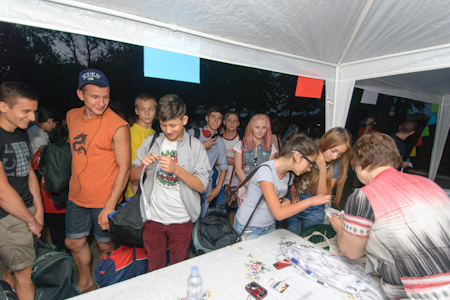
Community members helped to welcome and register participants
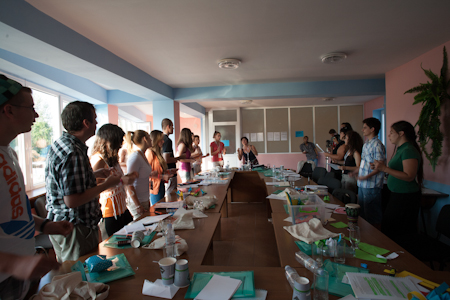
One of the workshop groups exploring the materials together
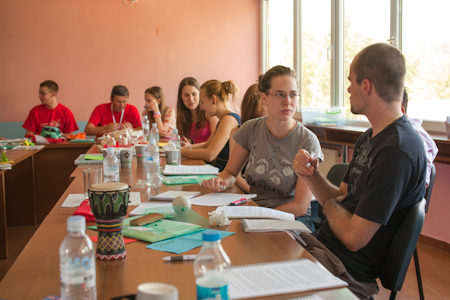
Youth shared insights with others from their communities
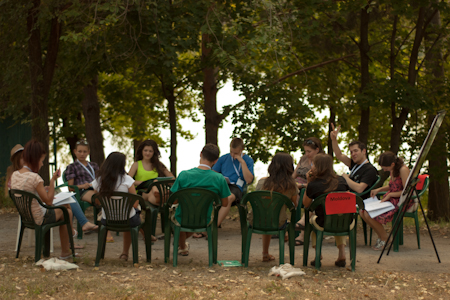
Some groups chose to study outside in the pleasant summer weather
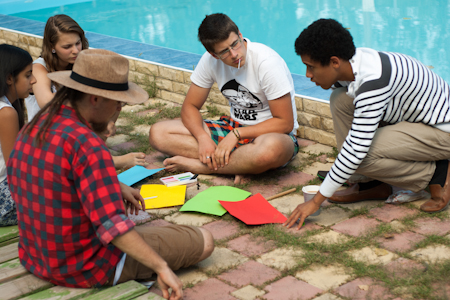
A variety of creative methods were used to share what they learned during different sessions
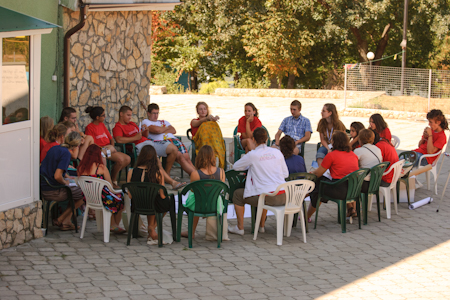
Group discussions helped the participants deepen their understanding
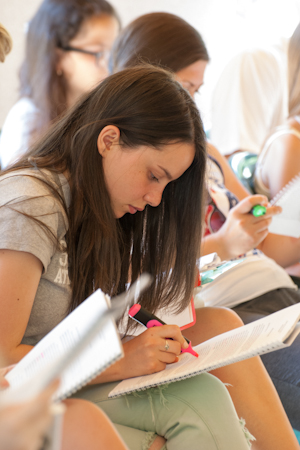
Study of the conference materials stimulated the thinking of the youth
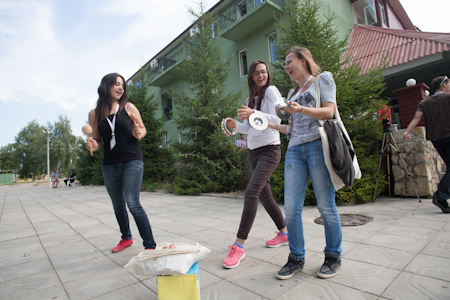
Activities expressed the bonds of friendship strengthened among the youth during their time together
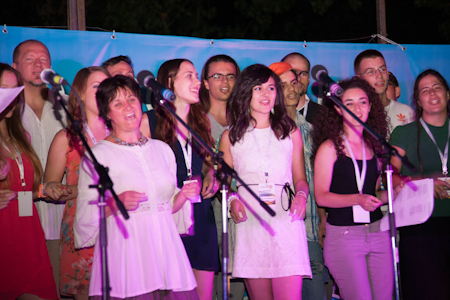
Youth performed musical presentations they had prepared in their groups
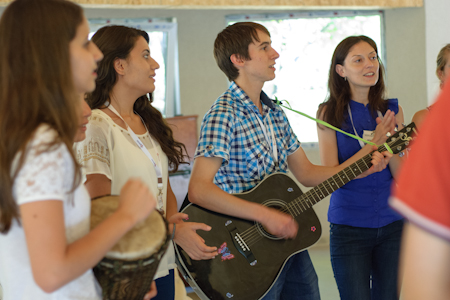
Songs often uplifted the hearts of all gathered
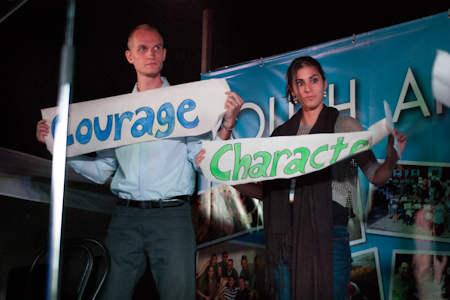
Participants sharing some of the ideas arising from their study and consultation
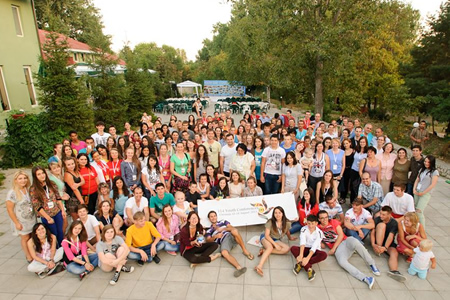
A group photo of the conference attendees